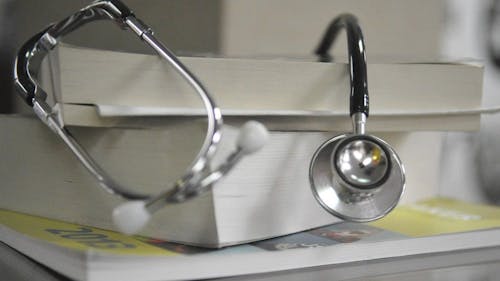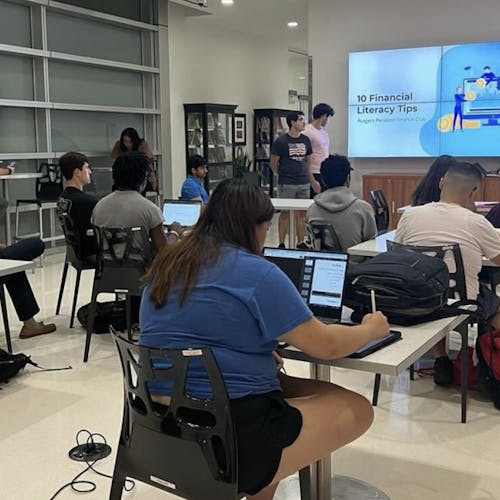Medical school admissions officers, students react to new MCAT

Pre-medical students at Rutgers, and across the country, will be facing a newly revised and more challenging Medical College Admissions Test (MCAT).
In addition to being broader and more difficult, the new MCAT is twice as long as the old edition and has a heavier section on biochemistry. The revised test, which was launched in April 2015, also has an added fourth section dedicated to behavioral tactics, psychology and sociology.
George Heinrich, the Rutgers Medical School’s associate dean on admissions, believes the new MCAT is difficult to interpret.
“One of the challenges the MCAT was supposed to improve on was the preparedness of students in medical school, and that is something not clear that is going to be a result,” Heinrich said.
According to a 2015 Kaplan Test Prep survey of medical school admissions officers, only 42 percent of medical schools surveyed believed the new MCAT will better prepare students for medical school than the old MCAT did.
But this is does not mean the new MCAT is entirely negative.
The emphasis on biochemistry in the new MCAT is beneficial, Heinrich said, because it is worthwhile for students to have a working knowledge of biochemistry.
Eric Chiu, the Kaplan director of the pre-health program, believes universities are uncertain about the new MCAT because they simply do not have enough data to determine how the new scoring system is valued.
“Schools are not saying everything about the new MCAT is a bad change,” Chiu said. “They just don’t have the data, and I believe over the next few years they will collect that data.”
One key difference between last year’s survey results is that medical schools had not yet seen their first MCAT scores and they have not had time to research the new scoring system, Chiu said.
“Nobody knows really what a 510 means in terms of its predictive value,” Chiu said. “Admissions at universities are looking to uncertainty, not negativity.”
Chiu believes confidence in the new MCAT will creep back up as new data emerges and universities are dealing with the reality of having to process thousands of applications with new MCAT scoring system.
Some schools are already doing research on the effects of the new MCAT.
“Research on the MCAT has been going on for five years. Surveying medical school faculty and getting a better understanding of how this test can better predict fake test in their programs,” Chiu said. “That is really what any standardized test is about, helping schools make good decisions about which students have the best academic potential to succeed in their programs.”
Nine percent of universities will be using SAT scores in the application process, Chiu said.
But Heinrich said the University is not one of the schools that will be using SAT scores in the admission process.
Some advice Chiu has for students preparing for medical school is to get an early start with test preparation and to talk advisors. Sophomore students should talk to their pre-health advisor and map out a plan.
“I think the new content areas of biochemistry, psychology and sociology speak to the ever-changing faith to medical education,” Chiu said.
Half the test is not rooted in natural sciences and and there is a new section called CARS, Critical Analysis and Reading Skills, Chiu said.
“The biggest niche about the the MCAT is it’s not just a science test,” Chiu said.
Valerie DeJesus, a School of Environmental and Biological Sciences junior, said psychology is a prerequisite for the SEBS core curriculum, but sociology was not and she would rather have taken something else.
Every section of the MCAT is considered and Heinrich said the critical thinking section and reading sections are just as important as the others.
The new exam consist of 11 semesters of prerequisite course work as opposed to the old exam which only required eight semesters.
“I already took psychology and sociology for undergrad, so I am not affected by the change in course work,” DeJesus said. “I have also been taking preparatory courses with ODADIS."
ODADIS, the Office for Diversity and Academic Success in the Sciences, has been preparing DeJesus and other students for the new MCAT, with preparation for the critical reading sections taking place in the fall semester and preparation for the natural sciences sections in the spring semester.
"Instead of doctors just treating patients individually like mechanics, they really have to understand socioeconomics of both health issues, peoples’ behavior and also (how to) be a more well rounded physician,” Chiu said.



